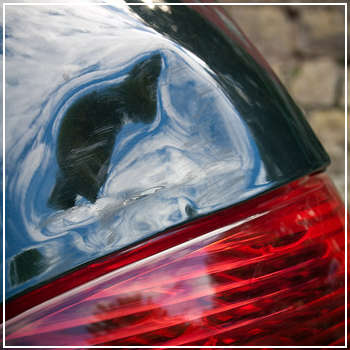One thing that people often overlook is their financial situation. If you’re still paying off your car loan, the bank technically owns the car until you finish paying it off. In that case, they expect you to maintain the vehicle in good condition. If you skip repairs after an accident, you might face serious consequences. Not only could the bank charge you for neglecting your duty to keep the car in proper shape, but you might also run afoul of insurance fraud laws if you cash the check without getting the necessary repairs done. Moreover, when you return the car at the end of your lease, you’ll likely face additional fees for failing to address existing damage. Even if you’re not worried about your lender, your insurance provider will still take note of the incident. They’ll keep a record of the accident and your decision not to repair the car. This could come back to bite you later if you’re involved in another accident. Your insurance company might reduce any future payouts based on the pre-existing damage. And let’s not forget that unresolved damage can significantly affect the car’s resale value, making it less attractive to potential buyers who prefer vehicles in better condition. Many people assume that if the damage is mostly cosmetic, like a small dent or scratch, it’s harmless. However, a seemingly minor collision can lead to much deeper problems that aren’t visible to the naked eye. For instance, a damaged bumper or headlight might seem trivial, but it could actually compromise your car’s functionality and safety. Take a moment to ask yourself some key questions: If you answered “no†to more than one of these questions, it’s best to avoid driving the car until it’s fixed. Hidden damage can lead to bigger problems down the line, so it’s always better to be safe than sorry. Even if your car moves well enough to get around town, that doesn’t mean it’s safe to drive. Many states require cars to pass regular safety inspections, and if yours doesn’t meet the criteria, you risk getting pulled over by law enforcement. Signs that your car might fail an inspection include excessive smoke from the exhaust, misaligned headlights, or doors that don’t close properly. For example, broken headlamps can create serious risks for both you and other drivers. If one of your headlights is cracked or missing entirely, it reduces your ability to see the road at night, increasing the likelihood of accidents. Similarly, broken tail lights can confuse other drivers, leading to rear-end collisions. Additionally, moisture entering through broken lenses can corrode internal components and cause bulbs to burn out prematurely. If your car isn’t up to snuff, it’s probably best to keep it parked until you can arrange for repairs. Driving with unresolved issues is never worth the risk, especially when it comes to something as essential as transportation. Whether you need help assessing post-accident damage or scheduling maintenance, DaSilva’s Auto Body is here to assist. Give us a call at our Naugatuck location to book an appointment today. Air To Water Heat Pump,Commercial Heat Pump,Residential Heat Pump,Monobloc Air To Water Heat Pump FOSHAN UWOTEC NEW ENERGY CO., LTD. , https://www.uwo-heatpump.com The other day, I was involved in an accident where another vehicle rear-ended mine, leaving my bumper and trunk dented. After taking stock of myself and my passengers, ensuring everyone was okay, and exchanging insurance details, I noticed the car seemed drivable. But just because it still moves doesn’t necessarily mean it’s safe to keep on the road without further checks. Here are some things to consider.
The other day, I was involved in an accident where another vehicle rear-ended mine, leaving my bumper and trunk dented. After taking stock of myself and my passengers, ensuring everyone was okay, and exchanging insurance details, I noticed the car seemed drivable. But just because it still moves doesn’t necessarily mean it’s safe to keep on the road without further checks. Here are some things to consider.Financial Implications
Invisible Damage
Safety Concerns
Should You Drive Your Car After an Accident?
Air to water heat pumps, which absorb heat from the outside air and then transfer it via the central heating system to provide hot water heating, radiator, or underfloor heating in an indoor space. UWO air to water heat pumps can be used for both heating and hot water systems, making them a versatile solution for building energy needs. Additionally, they have a long lifespan and require minimal maintenance, making them a reliable and low-maintenance option for heating and hot water systems.